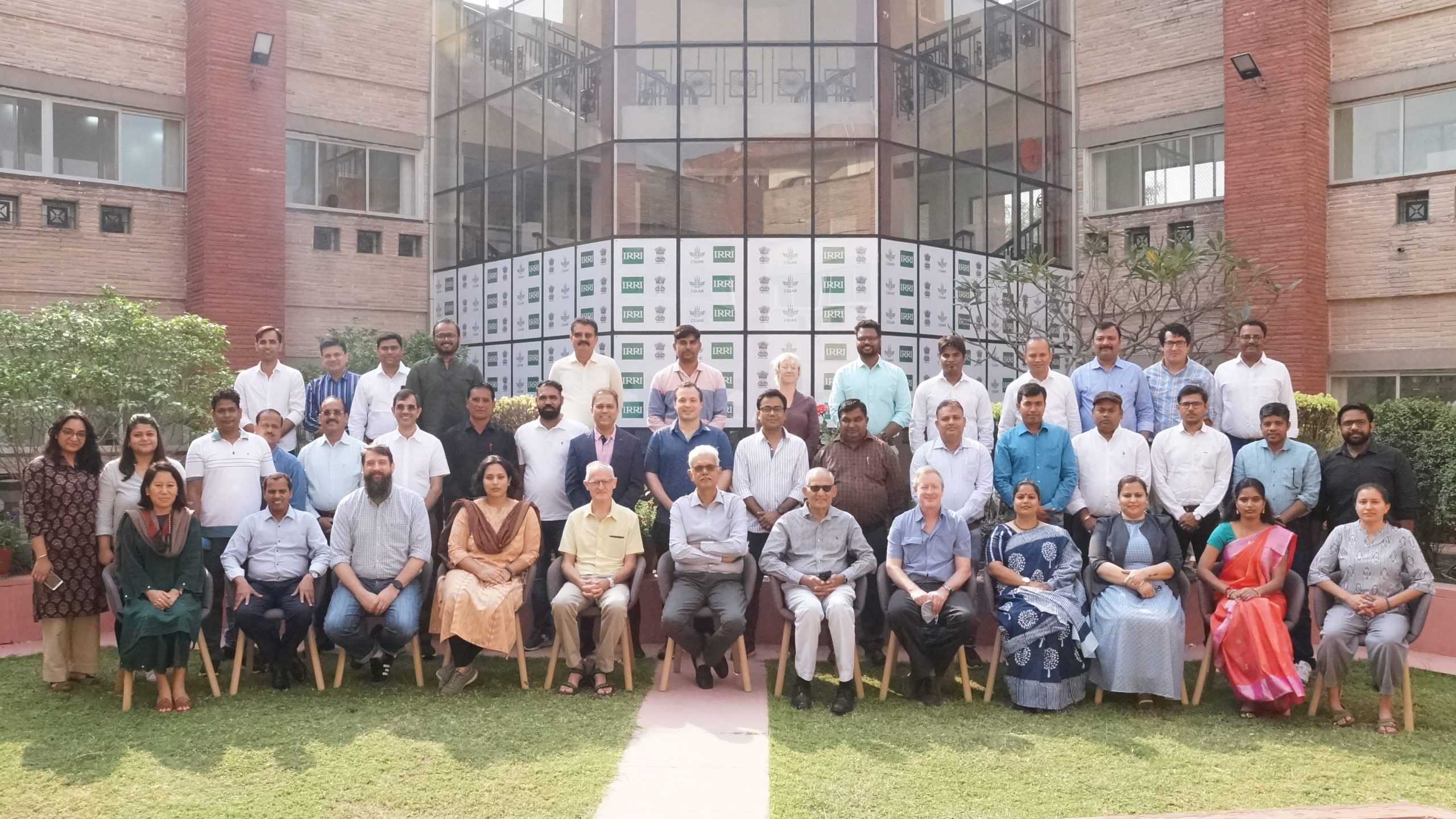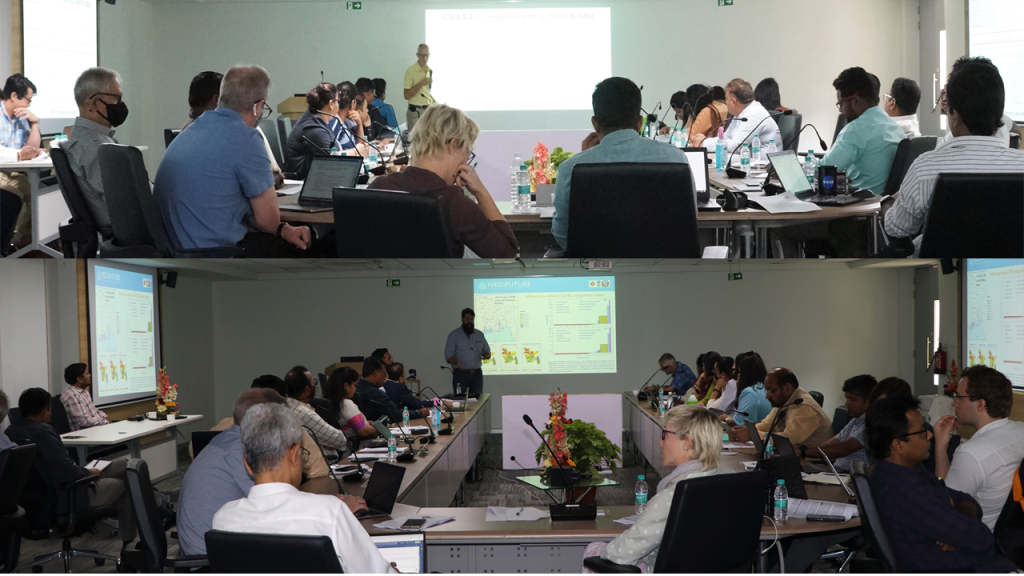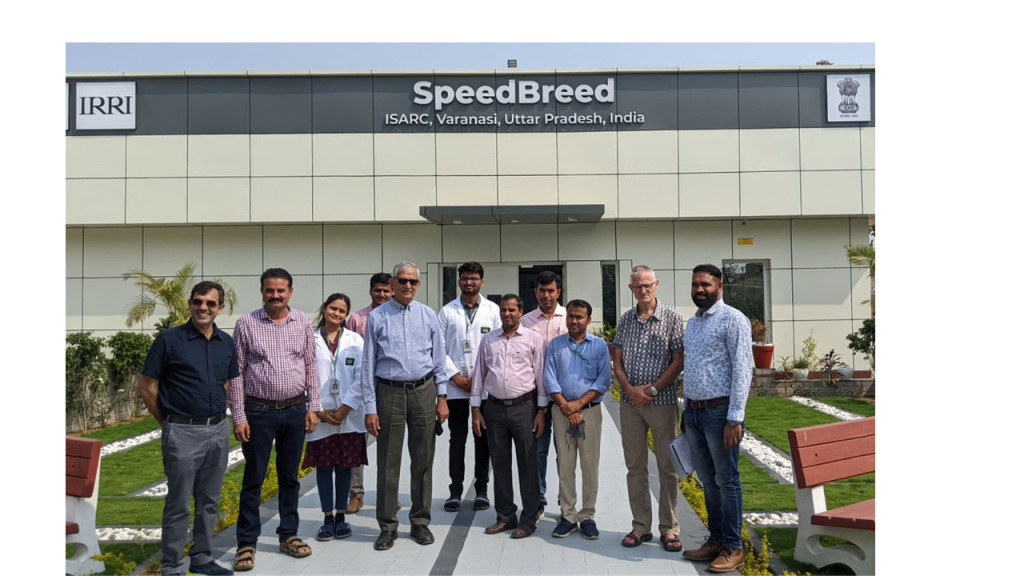March 2022, CSISA regional meeting, held in ISARC-Varanasi, India
Participants from across the country and region at the meeting proposed ideas and committed to actions for scaling innovations supporting smallholder farmers and strengthening project partnerships in-country and in the region.

On March (13 – 19), 2022, the Cereal Systems Initiative for South Asia (CSISA) project convened their regional – India, Nepal & Bangladesh – meeting in Varanasi, Uttar Pradesh, to discuss the project’s impact, plans, and potential convergence programs for the region.
After over two years, this gathering, the first in-person meeting was held at the International Rice Research Institute (IRRI) South Asia Regional Centre (SARC) in Varanasi at the invitation of Dr. Sudhanshu Singh, Director of ISARC and member CSISA core team.
Led by CSISA project leaders, the first two days (14 –15 March) were focused on understanding ongoing project plans, transitioning into CSISA 4.0 in India, and identifying common grounds for regional project initiatives. Dr. Peter Craufurd, CSISA India project leader, gave an overview of CSISA’s Phase 3.0 achievements, donor’s (Gates Foundation) perspective, expectations, and the CSISA India plan to scale these achievements in Phase 4.0. CSISA project leader for Bangladesh and Nepal, Dr. Timothy Krupnik, in his presentation, highlighted the impact of CSISA in the region and the scope to scale the same in the future. Dr. Krupnik, further, as the lead for Transforming Agrifood Systems in South Asia (TAFSSA), a regional CGIAR initiative, shared a brief outline of TAFFSA and the possible areas of convergence with CSISA.

To explore CSISA’s potential contribution to EiA (Excellence in Agronomy), a CGIAR initiative, Dr. Virender Kumar (IRRI-CSISA), along with Dr. Bernard Vanlauwe (remote) from the International Institute of Tropical Agriculture (IITA) led a session (14th March) to initiate discussion on possible convergence. On the same day, Dr. Brendan Brown (CIMMYT) presented a session focusing on the CSISA learnings titled ‘Process learning in CSISA 4: what is it & how are we going to measure it?’, with Dr. Arindam Samaddar and Anurag Ajay.
The third day (16th March), with the participation of all CSISA India team members, was entirely focused on understanding the CSISA Phase 4.0 implementation, including the role and responsibilities of all members as per the IOs (intermediate outcome) committed. CSISA India’s technical advisors, Dr. R. K. Malik and Dr. Andrew McDonald, explained the operation and deliverables in the months/year ahead and the possible planning envisioned to support the CSISA team in the implementation. A discussion centered around gender, economics, and social impact through CSISA.4 was also led by Dr. Prakashan Chellattan Veettil, with Dr. Muzna Alvi and Sugandha Munshi to support gender participation and adoption in agriculture research and development.
The regional meet also hosted side meetings for the core CSISA leads and small team meetings to support planning, understanding, and coordination between teams and researchers on expected goals and possible areas of collaboration and convergence.
The regional meet ended on 17th March with a field trip around the IRRI SARC, which included a visit to the center’s research fields, the new IRRI SpeedBreed facility, the state-of-the-art research labs, and the GIS hub at the center. CSISA participants from across the country left the meeting with a renewed sense of determination and commitment to supporting smallholder farmers in making agriculture sustainable, rewarding, and productive in the region. The entire logistics of the five-day meeting with over 45 participants was executed brilliantly by the CSISA team led by Cynthia Carmona, Panneerselvam Peramaiyan, and Kevin Jacob.

